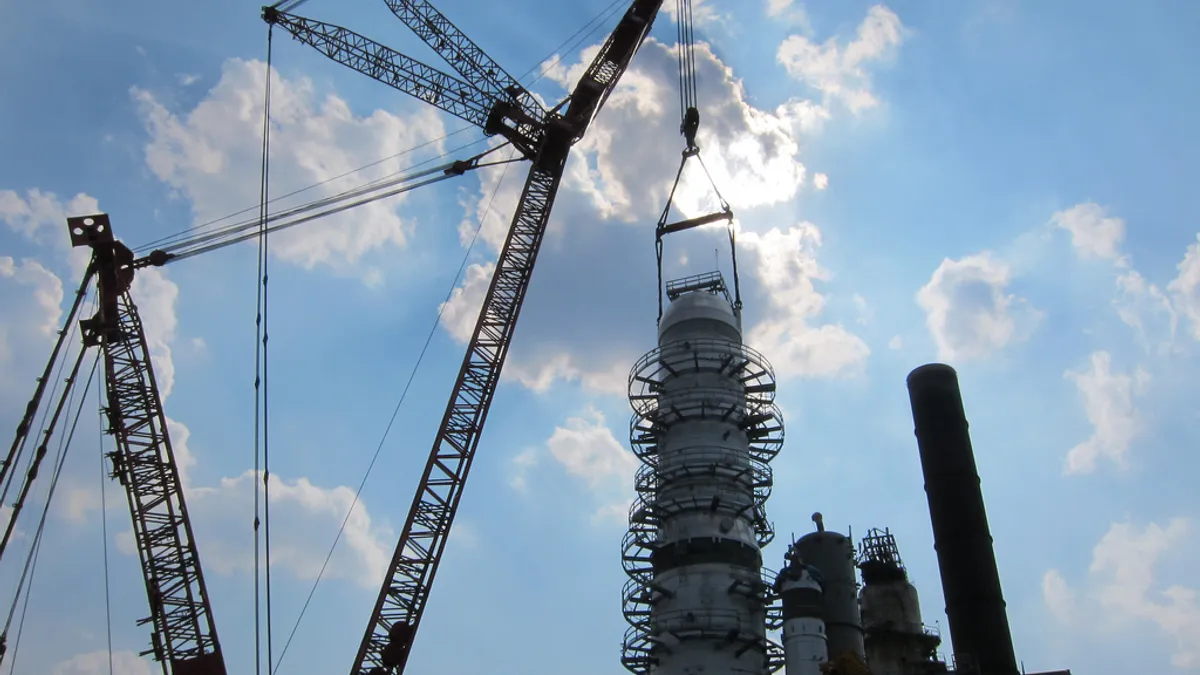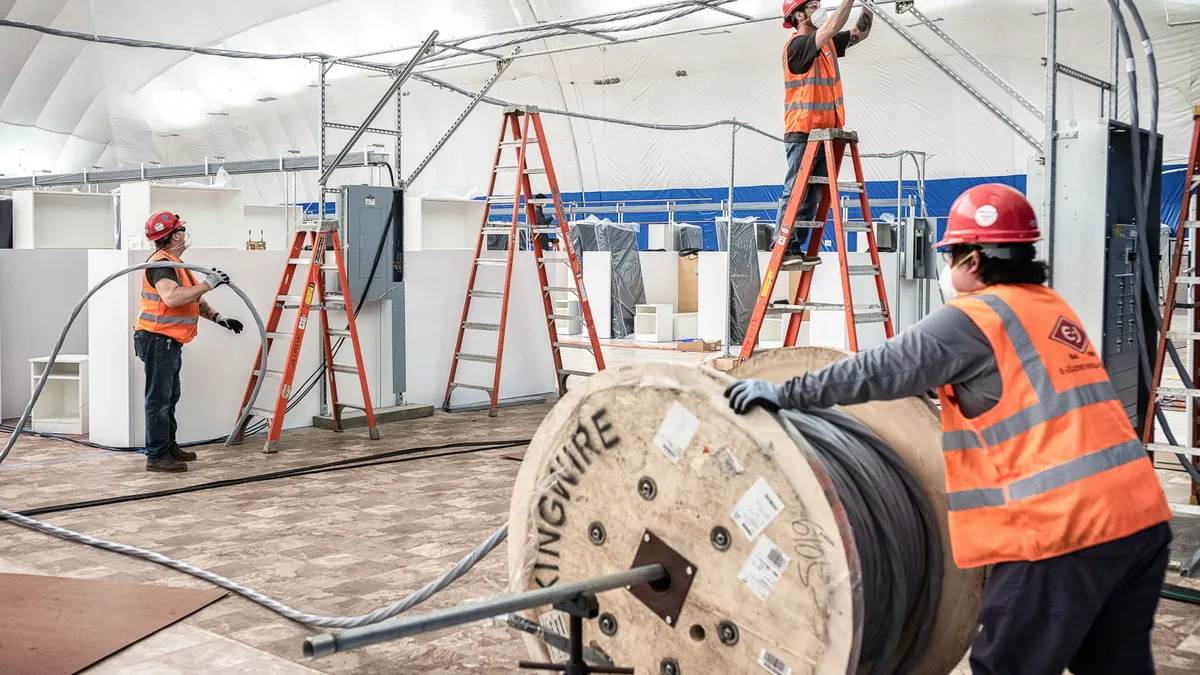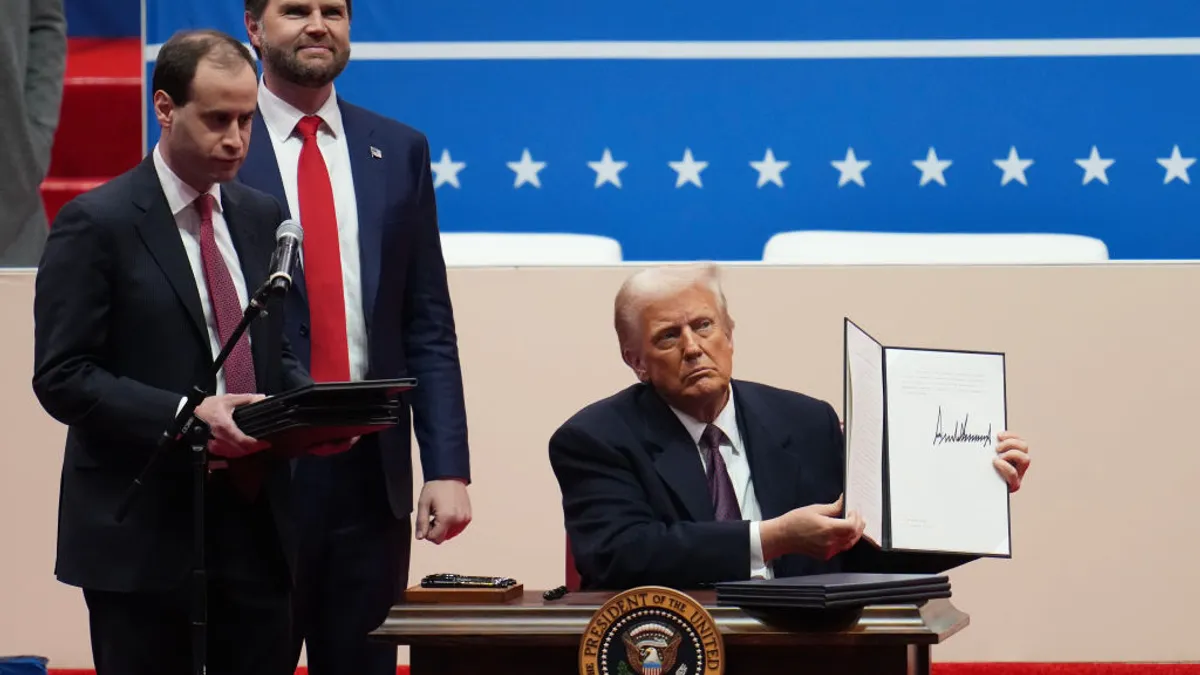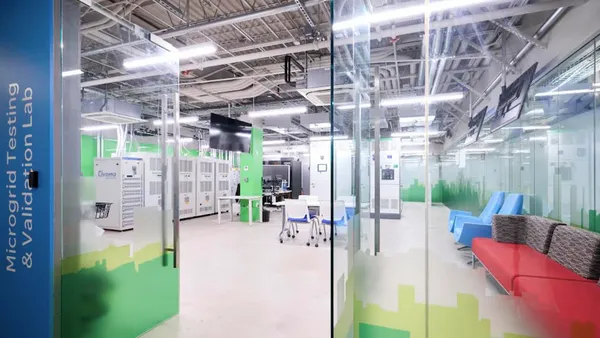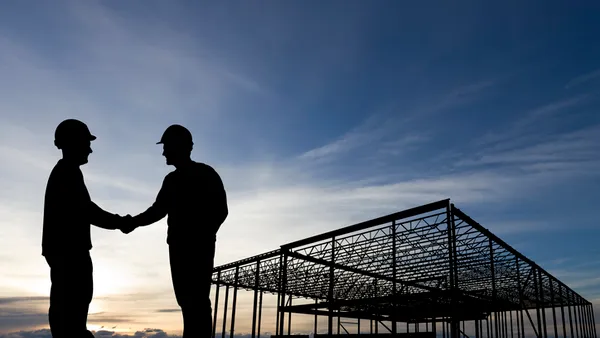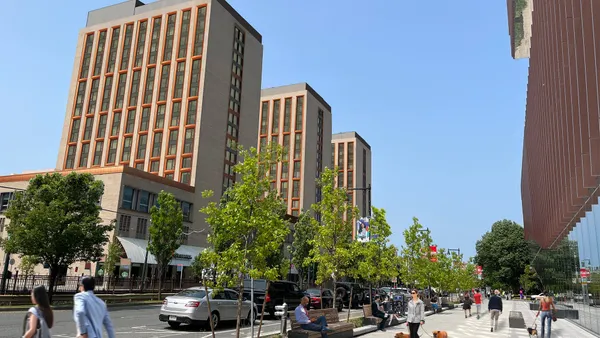Dive Brief:
-
Construction spending dipped 0.2% from February to March to a seasonally adjusted annual rate of $1.218 trillion, behind the upward-revised of $1.220 trillion in February, the Commerce Department reported Monday.
-
Private residential construction rose 1.2% during the period to a rate of $503.4 billion, while private nonresidential construction fell 1.3% from February to March to a rate of $436.8 billion. Within residential, single-family inched up 0.3%, while multifamily increased 2.0%. Public construction fell 0.9% during the period.
- March's construction spending figure is 3.6% ahead of the year-ago mark, and spending in the first three months of 2017 is 4.9% ahead of the same period last year.
Dive Insight:
March represented a departure from February's spending growth and a return to the two-straight months of declines in December and January. Industry observers expect construction spending to grow in 2017, with Dodge Data & Analytics economists forecasting that total construction starts could reach $712.9 billion for the year, a 5% increase from 2016.
In the residential construction sector, housing starts dropped off 6.8% in March while building permit authorizations were up 3.6% from February and 17% year-over-year. Those figures could signal growth in residential construction spending in the coming months.
Architecture billings, which indicate demand for design services and have a nine- to 12-month lead time on construction spending, grew in March. The American Institute of Architects' Architecture Billings Index posted a 3.6 point increase from February, its second month above the break-even threshold of 50.
The ongoing skilled-labor shortage and uncertainty over the Trump administration's infrastructure investment plan could slow project spending. Most recently, the administration proposed a tax reform bill that would repatriate corporate earnings from abroad, but it made no mention of infrastructure spending. While both parties had considered repatriation as a way to help pay for the administration's ambitious $1 trillion infrastructure plan, the absence of allowances for such projects has some lawmakers concerned the proposal could be postponed or scrapped entirely.


